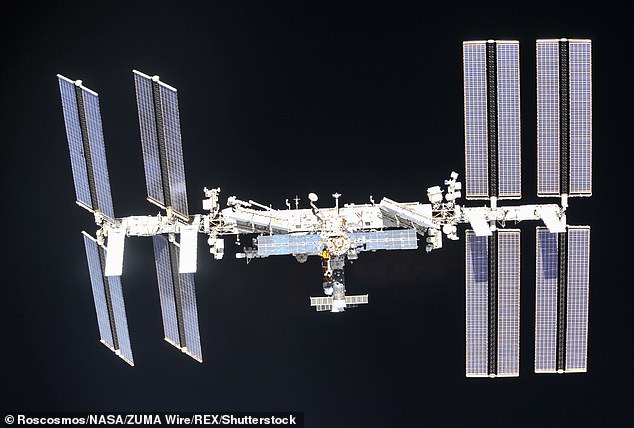
An ecosystem of mysterious ‘infectious organisms’ have been found inhabiting the International Space Station, according to a new study.
Scientists at NASA discovered that five different varieties of Enterobacter, a bug similar to that found in hospitals, have been found infesting outer space, posing a risk to astronauts.
According to researchers, there is a 79 per cent probability that the swarming bugs onboard the orbiting space station could lead to disease.
Scientists fear that astronauts could be at risk of contracting diseases if the mysterious organisms are found to be drug-resistant.
Dr Nitin Singh, the lead author on the space bugs report, said: ‘Given the multi-drug resistance results for these [bacteria] and the increased chance of pathogenicity we have identified, these species potentially pose important health considerations for future missions.’
Despite fears around the discovery of the space bugs scientists have stressed that as of yet the mystery organisms do not pose a threat to the humans inside the space station.
Dr Singh added: ‘It is important to understand that the strains found on the ISS were not virulent, which means they are not an active threat to human health, but something to be monitored.’
Dr Kasthuri Venkateswaran, a microbiologist at Jet Propulsion Laboratory Biotechnology and Planetary Protection Group and corresponding author of the study, said that three of the strains belonged to a species which caused disease in newborn babies.
























